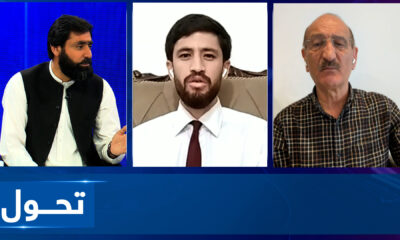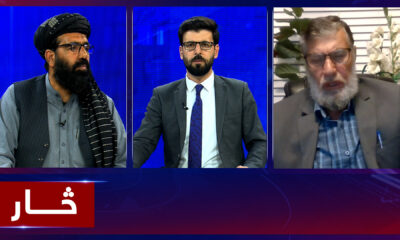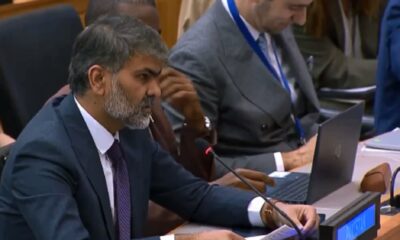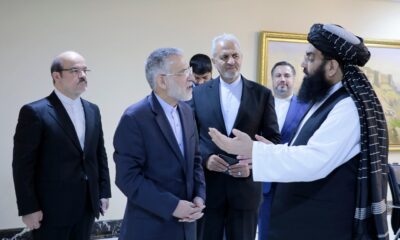Latest News
Kabul to face severe water shortage by 2030, UNICEF warns
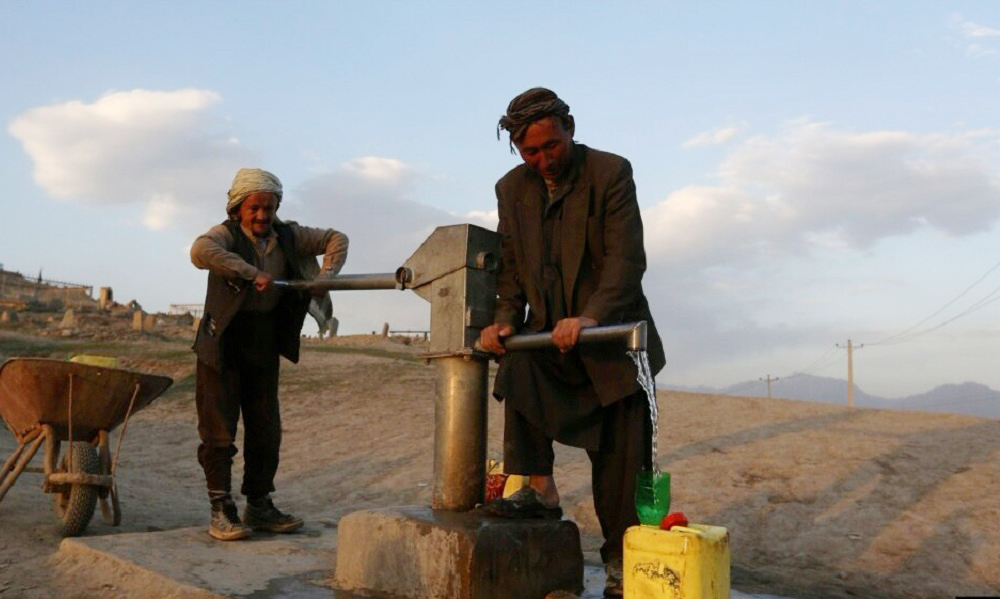
The United Nations Children’s Fund (UNICEF) has warned that Afghanistan is experiencing a severe water crisis, and if no action is taken, Kabul’s underground water resources could be depleted by 2030.
In a message on X on Tuesday, UNICEF reported that Roza Otunbayeva, head of the United Nations Assistance Mission in Afghanistan (UNAMA), and Tajudeen Oyewale, head of UNICEF Afghanistan, visited a Kabul district to assess the city’s water supply network.
Both officials expressed concern over the worsening water shortage in the capital.
“Water is life,” UNICEF stated, emphasizing that rapid urbanization and climate change are accelerating the depletion of groundwater in Kabul.
“If we don’t act now, we cannot stop this process.”
The rapid population growth, unplanned construction of high-rise buildings, urban development without proper planning, and the excessive use of underground water resources are major factors contributing to the decline in both the quantity and quality of groundwater in Kabul.
Although Kabul has faced water shortages for years, the crisis has become more severe in recent times.
The Ministry of Energy and Water recently announced that it is working on a project to transfer water from the Panjshir River to Kabul to help mitigate the shortage.
Latest News
Pakistan urges global community to block arms flow to militant groups in Afghanistan

A Pakistani diplomat on Saturday called on the international community to block the flow of modern and sophisticated weapons to militant groups in Afghanistan.
“Terrorist armed groups are in possession of billions worth of illicit arms abandoned in Afghanistan,” Syed Atif Raza, a counsellor at the Pakistan Mission to the UN, told an Arria-Formua meeting of the UN Security Council, convened by Sierra Leone.
“We call upon our international partners to recover the vast stockpile of abandoned weapons, prevent their access to armed terrorist groups and take measures to close this thriving black market of illicit arms,” he said.
Pakistani officials have repeatedly claimed that attacks in the country are planned in Afghanistan and that militants use weapons left behind by foreign forces.
The Islamic Emirate, however, has denied the claim, saying Afghanistan is not responsible for Pakistan’s “security failure”.
Latest News
Gandapur says no Afghan refugee will be ‘forcefully’ expelled from Khyber Pakhtunkhwa
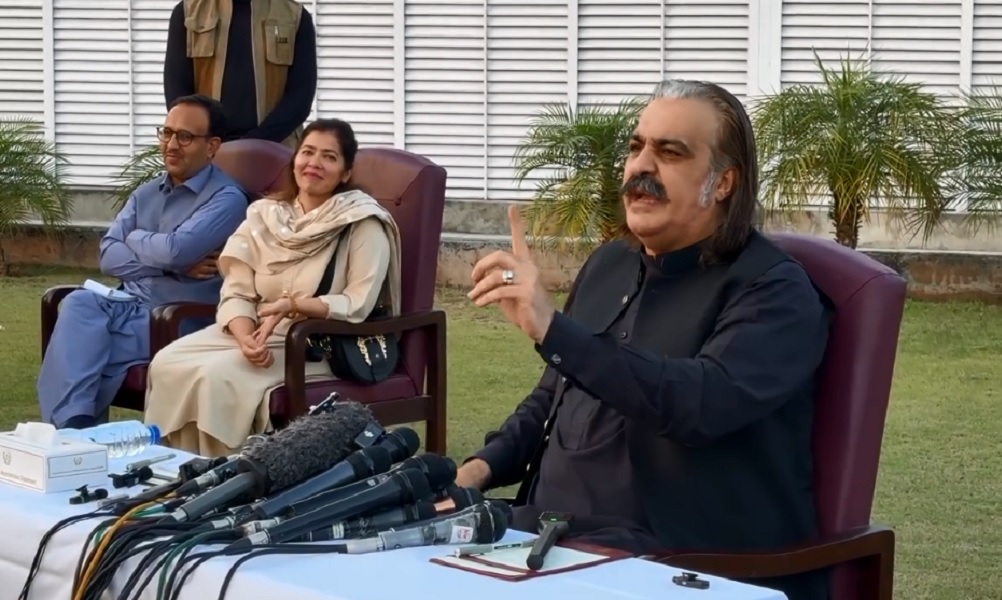
Amid rising tensions over Pakistan’s repatriation plans for illegal Afghan nationals, Khyber Pakhtunkhwa Chief Minister Ali Amin Gandapour said on Friday that no refugees will be forcibly deported from the province.
“We will not allow any Afghan refugee to be expelled by force from Khyber Pakhtunkhwa. We stand firmly against such inhumane deportations,” Gandapur said at a press conference.
The remarks came as the Pakistani government ramps up efforts to repatriate undocumented Afghan refugees and Afghan Citizen Card (ACC) holders, following the expiration of the voluntary return deadline on March 31, 2025.
“The past situation, where Afghan refugees, including women and children, were stranded at the border, tarnished Pakistan’s image,” Gandapur said, reaffirming the provincial government’s commitment to a dignified repatriation process.
“We are setting up camps for voluntary repatriation, and anyone wishing to return will be helped. However, we will not forcibly expel any Afghan refugee,” he stated.
Afghans holding Afghan Citizen Cards (ACC) — issued by Pakistan authorities and held by 800,000 people, according to the United Nations — face deportation to Afghanistan after the deadline.
More than 1.3 million Afghans who hold Proof of Registration (PoR) cards from the UN refugee agency, UNHCR, are also to be moved outside the capital Islamabad and neighbouring city Rawalpindi.
Latest News
IEA has 46 township plans for returnees, minister tells visiting Iranian official
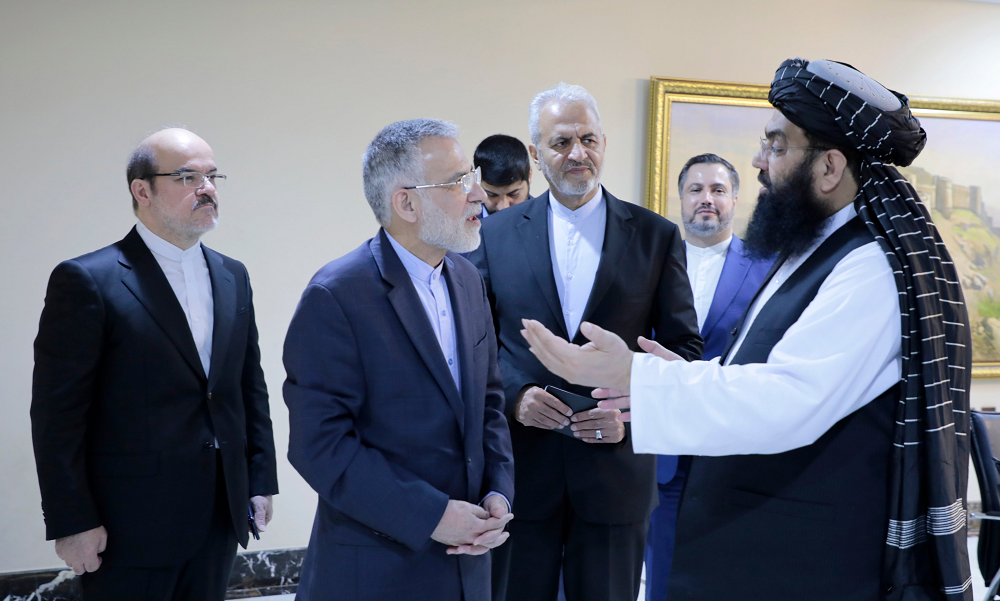
The Islamic Emirate of Afghanistan (IEA) has 46 township plans for returning refugees, Acting Minister of Refugees and Repatriation Mawlawi Abdul Kabir told a visiting Iranian diplomat in Kabul, calling on Tehran to give refugees time to return.
According to a statement issued by the ministry on Saturday, Abdul Kabir said during the meeting that Afghanistan and Iran are friendly neighbors that have many commonalities.
He stressed the need to further develop and strengthen relations between the two countries and said that the frequent visits of high-ranking Iranian officials show that Tehran wants positive and friendly relations with Afghanistan.
Abdul Kabir thanked Iran for its assistance and hosting of Afghan refugees, saying that Iran and Pakistan have been hosting Afghan refugees for the past few decades. He called for more leniency in the treatment of migrants.
He said that the Islamic Emirate is preparing a mechanism to provide legal documents for those migrants whose legal residence in Iran has expired.
In the meeting, Mohammad Reza Bahrami, Iran’s new Assistant Minister and Director General for South Asian Affairs at the Foreign Ministry, invited Abdul Kabir to visit Tehran, and called for repatriation plan to be shared before the trip.
He stressed on the humane treatment of Afghan refugees and appreciated the Islamic Emirate’s initiative to build 46 townships, calling it an important step forward for the return of refugees.
Bahrami noted that there are currently eight million Afghan reguees living in Iran, of whom four million are undocumented or have their residence expired.
-

 Latest News4 days ago
Latest News4 days agoAfghanistan’s reconstruction is in the interest of EU: Uzbek president
-

 Latest News5 days ago
Latest News5 days agoUS won’t rest until all Americans detained in Afghanistan brought home: Rubio
-

 Latest News4 days ago
Latest News4 days agoMinistry of Economy calls on US to release Afghanistan’s frozen funds
-

 Latest News5 days ago
Latest News5 days agoBulgaria brings five people to trial over deaths of 18 Afghan migrants
-

 Latest News4 days ago
Latest News4 days agoPakistan ‘extends’ deadline for a week for Afghans to leave the country
-

 Regional5 days ago
Regional5 days agoChina launches military drills around Taiwan, calls its president a ‘parasite’
-

 Business5 days ago
Business5 days agoGold climbs to record high as tariff worries bolster safe-haven demand
-

 Sport4 days ago
Sport4 days agoIPL 2025: Batters in race for prestigious Orange Cap


